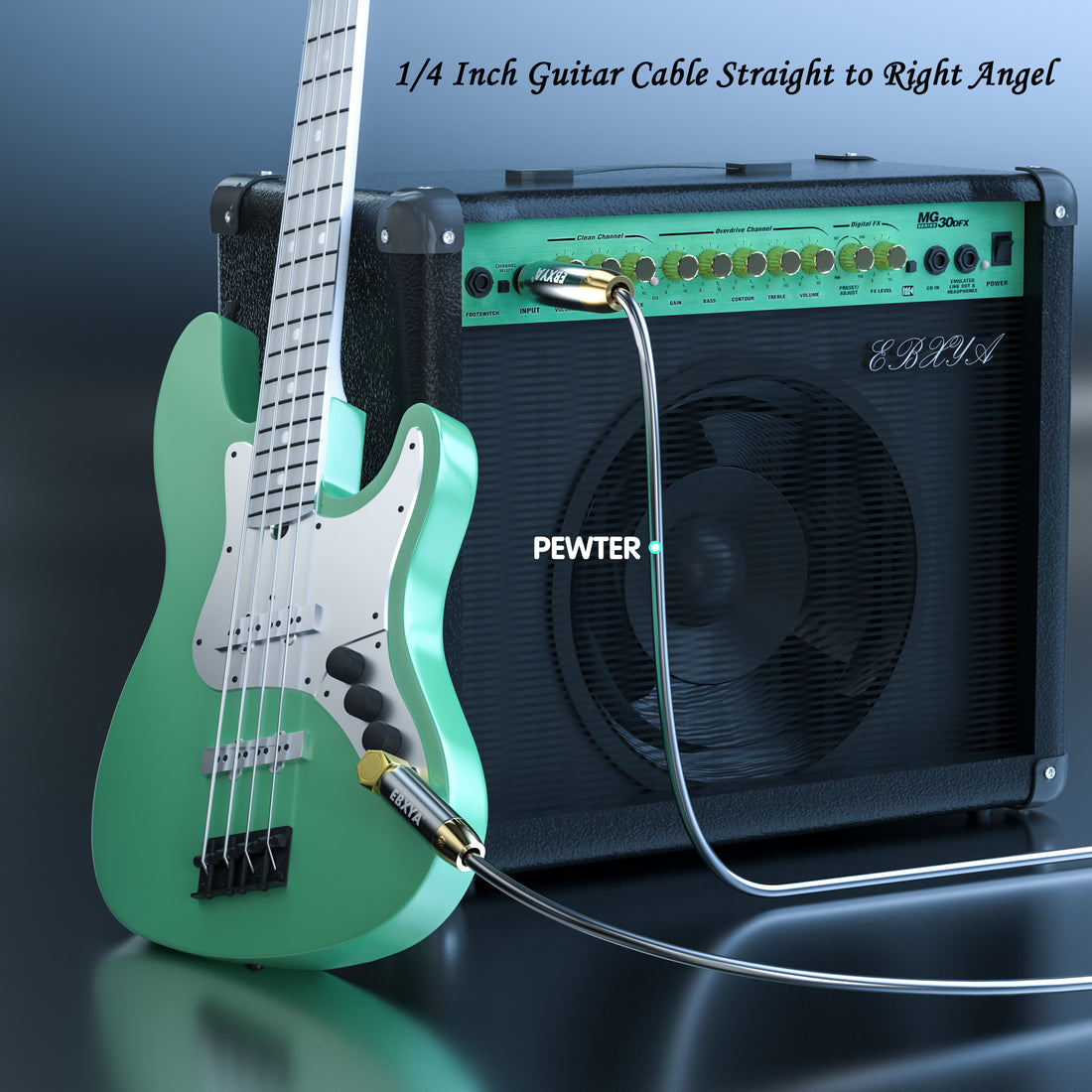In the past we didn't seem to have so many requirements when buying guitar cables, as long as it didn't have a dropped connector or short circuit, then it was a good cable. But now there are more and more choices and a lot of expensive cables that claim to improve tone all around, but do they really make a difference, or are they just propaganda talk? First of all, if your guitar/bass pickup is active, the difference brought by different wires is relatively smaller due to the very low output impedance of the active line; if you use a passive pickup, the difference is indeed quite big.
The resistance of the guitar wire is very small compared to the pickup & control line, so its resistance basically doesn't affect your tone, but the capacitance of the wire is different. Two electrical conductors insulated from each other and close to each other produce capacitance, and the greater the surface area of the conductor the greater the capacitance for a given distance. An average guitar cable's core and shield produce a capacitance value of about 30 pF per foot (or 100 pF per meter), meaning the longer the wire the greater the capacitance.
In audio circuits, the capacitance of this value is also commonly used for low-pass filtering, so if you use a longer, or capacitance value of the line, it will weaken the guitar signal high frequency, which is also some high-end wire manufacturers want to want to solve, and explain to consumers the problem. But buying a low capacitance cable is only a small part of the road to good tone.
Don't rush to comment on any wire yet, after all, the whole history of guitar tone is built on top of not perfect technology, and guitarists used to record those great albums with ordinary guitar wire, so if you want to copy their guitar sound exactly, there may be no need to pursue that ultra-low tolerance wire. Today we can make full-range guitar pickups, we can make speakers with no signal distortion, and speaker systems that cover the entire audio spectrum, but guitarists won't buy it because it doesn't rock at all.
Another important point is that the capacitor of the guitar cable will not only play the role of low-pass filtering. The pickup of an electric guitar is an inductive coil, and connecting the capacitor to the inductive coil will form a resonant circuit. In a traditional electric guitar, the volume & tone line and the resistance of the pickup itself will have some damping effect on the resonant circuit, but there will still be a 1-2dB resonant peak in the frequency response curve. Other things being equal, if you choose a low capacitance wire, the resonant frequency point will be higher, i.e. the overall tone will be brighter; on the contrary, a high capacitance wire will lower the resonant frequency point of the pickup, i.e. the overall tone will be darker and warmer. Either way, there will be some change in pickup tone.
Understanding this knowledge is helpful, if your instrument has a darker tone, you can use a good quality low tolerance wire to do something to make up for it, if the tone is thin and weak, an ordinary high tolerance wire will make it sound fuller instead. You can test yourself, the short line and the ordinary length of the line to do a comparison, see what is different after the guitar tone, and then consider whether or not to change a good line. If you can't, you can also use wireless guitar connection devices, they basically do not have the problem of wire capacitance, and do not affect the resonant frequency of the pickup.
To summarize, wire does have an effect on passive coil pickups for guitar, however there is no single answer to the question of which wire is best for your instrument, because just like amps and speakers, it is part of your tone.

